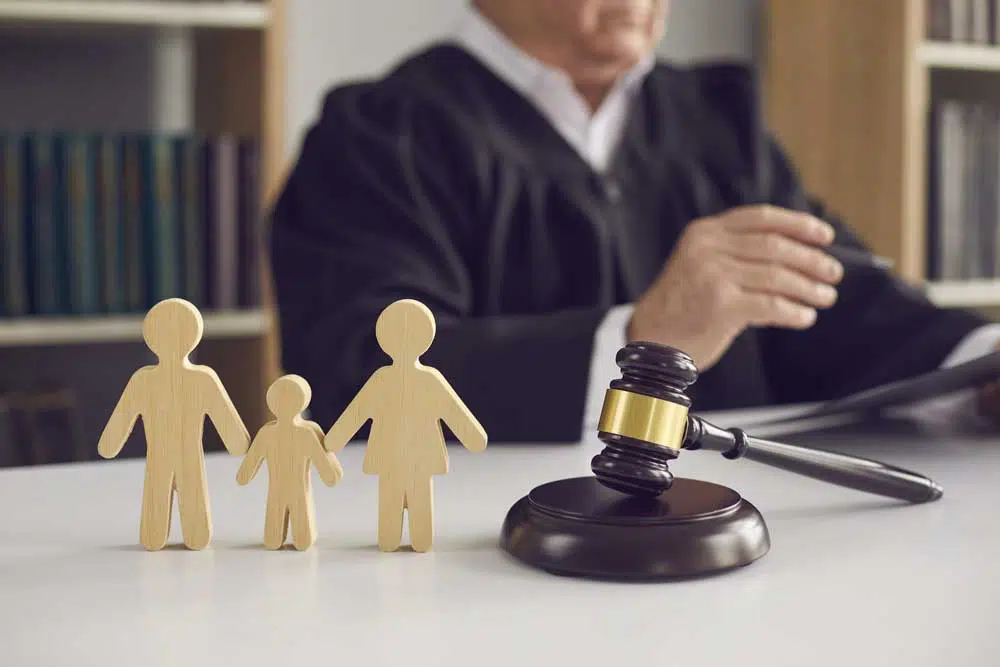What’s your favorite color? If you’re like most people, it’s blue. That is not likely to be the kind of question a Juvenile and Domestic Relations District Court (JDRDC) judge will ask during a child custody hearing. Here’s what she or he will ask.
How Common is it for a Judge to Interview a Child for a Custody Case?
When determining child custody, Virginia law compels everyone involved to work for the “best interests of the child.” Rarely, a judge may want to get the child’s perspective on the case and so will interview your child, with a goal of making sure the child understands the proceedings.
Judges also know not to confuse a child by suggesting the child gets to choose the custodial parent. In most instances, the child has no say in which parent gains primary custody.
You may be worrying about a judge’s questions for no good reason, since judges tend not to interview children. They rely instead on known authorities and experts to provide insights into the child’s state of mind, the living conditions of both parents, the child’s educational and home environments, and the child’s hobbies, friends, and extended family.
In Camera Questioning and The Blame Game
A good judge — and the JDRDC is largely populated by good, well-intentioned judges — will probe the child’s state of mind to counter the #1 child problem with separation and divorce: self-blame.
As insightfully outlined at Exquisite Minds, most Virginia children are reared in loving, safe homes geared to preventing heartache, physical pain, and accidents. That means, when accidents do happen, the child is often the prime mover (think about the fingers on a hot stove, the fork in the electrical outlet, the slow acquisition of social rules).
Children grow up realizing their parents try to protect them but, inevitably, the children’s own behavior sometimes leads to unpleasantness. So, when Mom and Dad divorce and custody battles ensue, the child’s logic is to take ownership of the disaster.
A JDRDC judge will attempt to counter that through questioning in the judge’s chambers, on the record, with only the court reporter and attorneys (not parents) present. The judge will ask your child about her or his life and your child’s preferences as to custodial parent (if age-appropriate and in accordance with Code of Virginia § 20-124.3)
The judge’s goal is to protect your child. A judge will not waste court time (and in camera questioning is still court time) with relative trivialities like “Who washes the dishes?” or “What time do you go to bed?”
Other professionals can provide reports to the judge for detailed issues like home life, finances, and domestic routines. The judge hopes to accomplish two things in interviewing your kid:
- Match the child’s unguarded personality with the better-fitting parent
- Prevent the child from feeling any responsibility or guilt regarding the decision
What Questions Do Judges Most Often Ask?
The general line of questioning might be like this:
- What’s your name?
- How old are you?
- Do you have brothers and sisters?
- Do you enjoy school/sports/music/scouts?
[Those questions help settle and calm the child]
- Do you know why we are here and talking today?
- Do you understand that all the adults around you want you to be safe and happy?
- I will listen to your ideas about both your parents, but nothing you do or say, or have done or said, will be the reason you live with one parent or the other; I am the only one who chooses which parent gets to live with you, okay?
[Those questions help relieve the child of any responsibility for such a traumatic decision]
- Can you tell me things you and your mother like to do together?
- What is something you like about your Dad?
- Can you remember a time you spent with your Mom/Dad that was really fun?
[Those questions provide insight into the parent-child relationship]
- Does your Mommy/Daddy ever do something you don’t like?
- Is there something you would like your Mommy/Daddy to do that they aren’t doing now?
[Those questions, and their responses, can provide insight into the possibility of parental alienation by one parent toward the other]
If you are concerned about the questions a judge may present to your child, talk it over with your family law attorney. Custody battles are often unpleasant, and the prospect of your child being interviewed by a judge may be a motivator to seek a better solution.
When you contact our Virginia custody attorneys at (757) 383-9184, you reach a committed partner for your side of any Virginia family law case. We can prepare you for court, assist you in talking to your children, and protect your rights in child custody matters.

